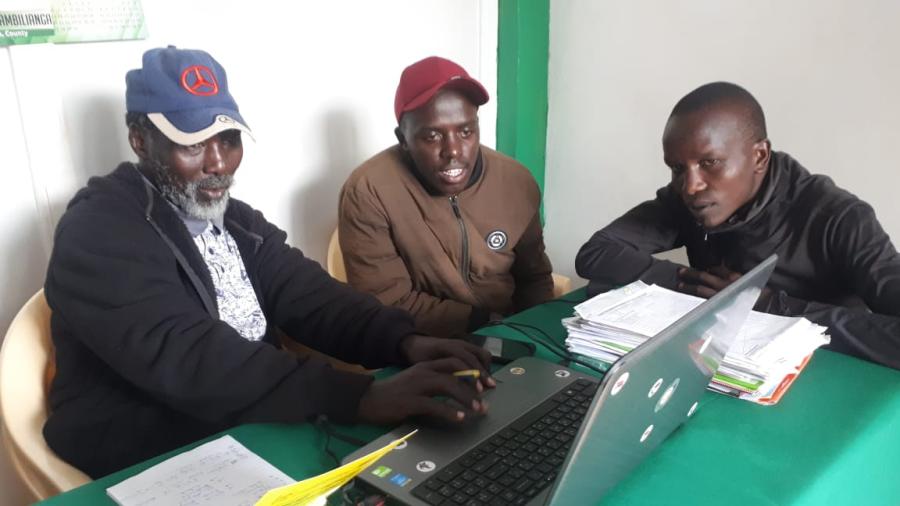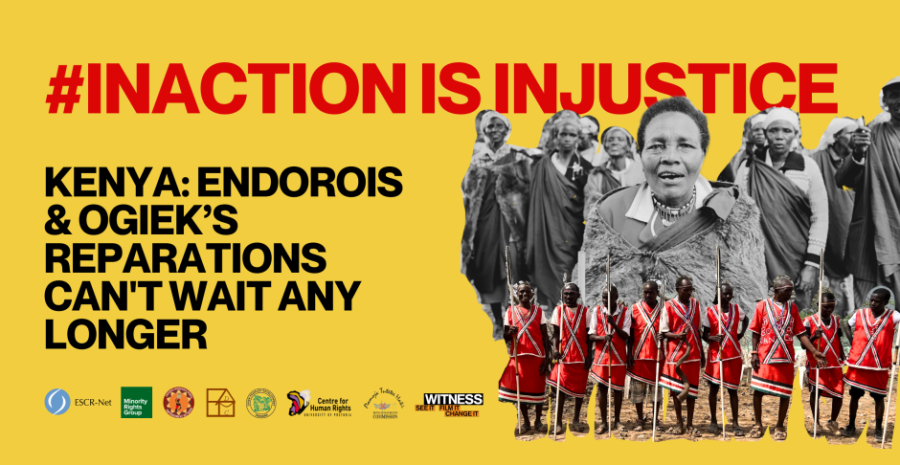
By Peter Kinyanjui (Gikuyu)
Nestled in the majestic Sagala Hills, a community of mountain and plains dwellers graces the foothills and plains of the vast Tsavo East National Park, the largest of Kenya's national parks. The two main towns surrounding the hills, Rakhasi and Talio, border the Kasigau Wildlife Corridor and the Mgeno Ranch, soon to be a conservancy. Most of the land here is community-owned, and while development is now catching up within the plains where a vast tract of African wildlife roams, a backdrop of hills and mountain ranges embodies the plains along the Kenya-Tanzania border. The northern two-thirds of Tsavo East are rarely visited by casual tourists, which means that the park looks larger on a map than it feels on the ground. Yet, the majestic baobab trees make one feel like an ant in Jurassic Park.
The vision of sustainable tourism and hiking experiences that celebrate Indigenous values and traditions began here with a dream, a spark of hope, and a shared commitment to preserving their ancestral lands. As the world celebrates World Tourism Day on September 27, the communities of Sagala and Rakhasi have a remarkable story to share.
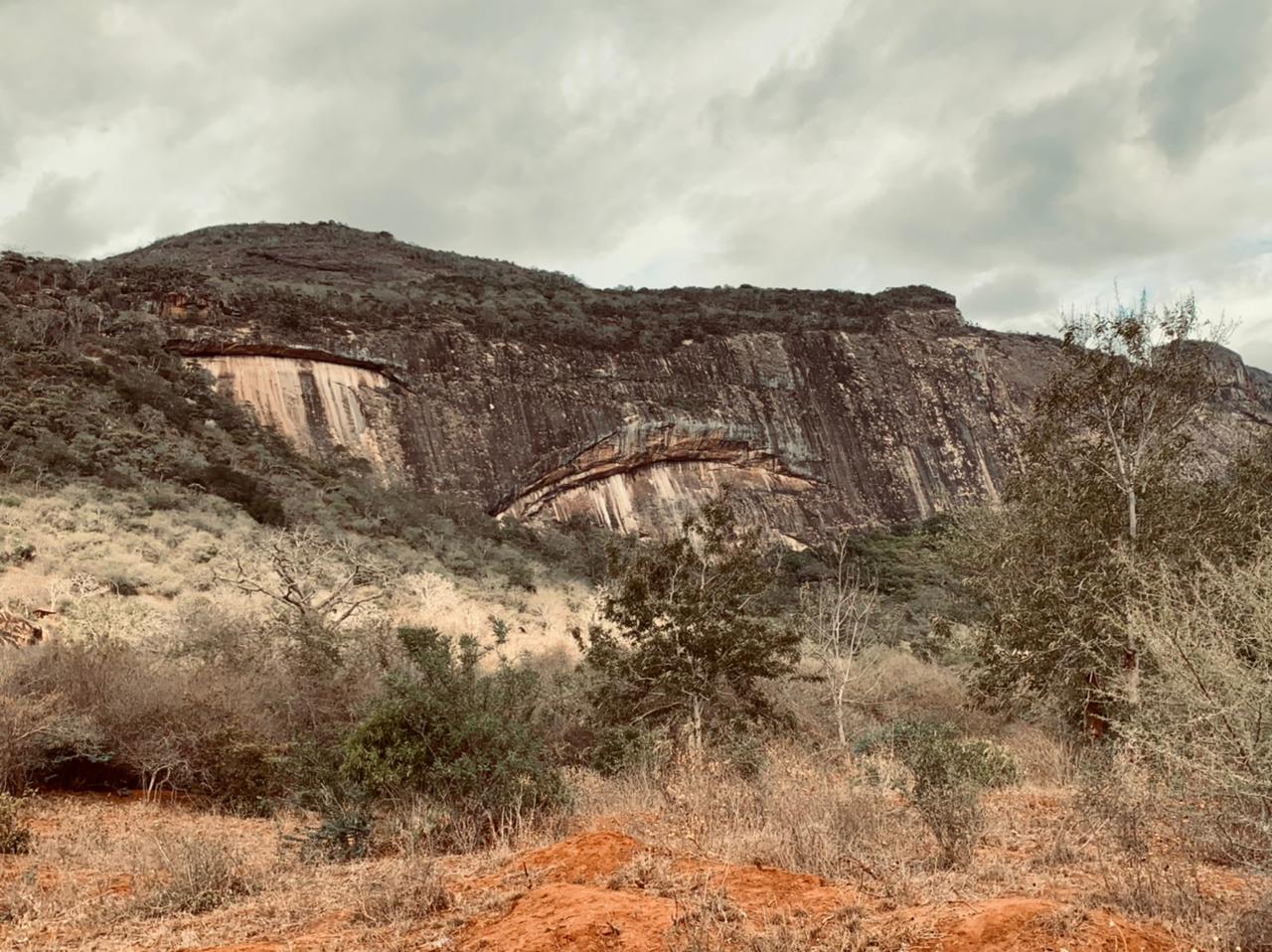
Origins
The Sagala Hills, situated within Taita Taveta County, Kenya, are home to the Taita people, an Indigenous community that has inhabited the hills and plains for centuries. In the face of increased urbanization and the encroachment of outside influences, the people have realized it is time to take control of their destiny. In a series of meetings, mainly narration sessions under the ancient baobab and acacia trees, Elders have shared stories with us of their earlier life experiences growing up in these great hills and plains, and of their ancestors, who always lived in harmony with nature.
Today, the communities here face many challenges; chief among them are human-wildlife conflict, deforestation, and water scarcity. Farmers grow crops in March (“long rains”) and October (“short rains”), though this cycle has been challenged by climate change impacts, including prolonged dry periods, erratic rains, pest and disease infestations, and declining soil fertility. Inspired by the tales of the Elders, the community realized that the key to preserving their way of life is to innovate and invite the world into their world towards an inclusive and sustainable future for people, the planet, and current and future generations.
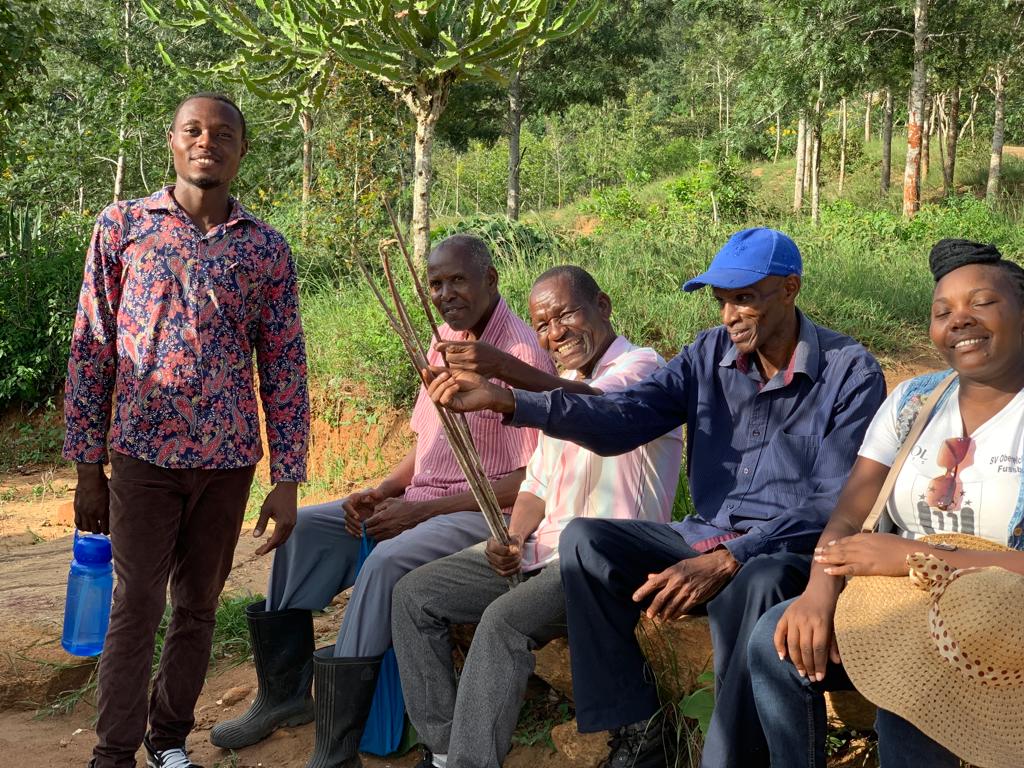
Building on Indigenous Values
The Sagala and Rakhasi community-led tourism project is rooted in their Indigenous values of respect for nature, reciprocity, storytelling, and interdependence, and aims to create a symbiotic relationship between visitors and the land they cherish. The Ataita people, led by their Elders, believe that by sharing their traditions and way of life, they will foster a deeper understanding of the importance of preserving the environment towards designing a prosperous sustainable future.
Activities
Cultural Immersion: Visitors are welcomed with open arms into the community. They participate in traditional ceremonies, learn about the Tribe's customs, and share meals prepared with locally sourced ingredients, mainly native vegetables and grains.
Eco-Trekking/Hiking: Guided hikes through the pristine mountain forests allow tourists to appreciate the unspoiled beauty of the Sagala Tribe's homeland. The community aims to ensure that these hikes leave no trace and maintain the integrity of the environment.
Storytelling Nights: Gathered around campfires, tourists and community members share stories, songs, and dances, bridging cultural divides and creating lasting connections.
Game Drives: Visitors have the unique opportunity to embark on game drives through the nearby wildlife sanctuary. Led by experienced guides from the community, these drives offer a chance to witness the rich biodiversity of the region from graceful antelopes, dick dicks, and giraffes to majestic elephants, countless butterflies, and bird life, among countless other species.
Homestay Experiences: To further immerse visitors in the communities' way of life, homestay experiences are offered. Tourists live with local families, sharing daily routines and gaining a deeper understanding of their traditions.
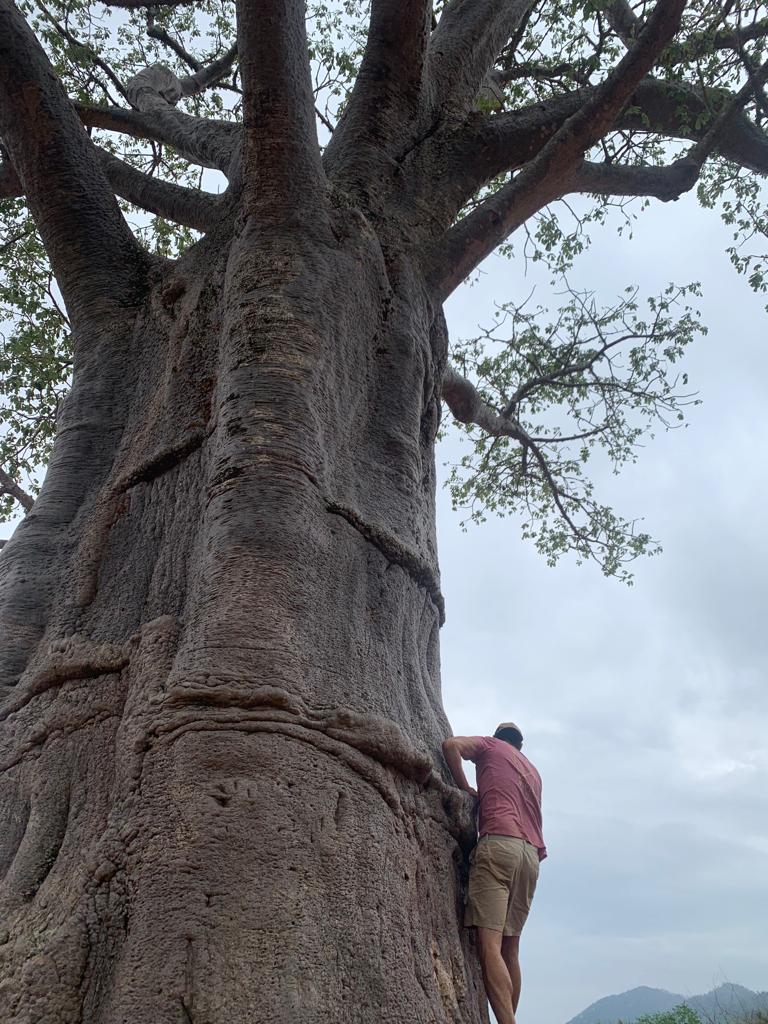
Sustainable Fashion Project & Eco-Lodge Future Setup
As part of our commitment to holistic sustainability and community empowerment, Sagala and Rakhasi communities have embarked on two visionary projects to secure a prosperous future for their people and the environment.
Recognizing the potential of sustainable fashion as a means of economic empowerment, we are collaborating with local artisans to create clothing and accessories that blend modern aesthetics with our Indigenous heritage. These items are crafted using eco-friendly materials such as organic cotton and handwoven fabrics and traditional techniques passed down through generations.
Visitors to our community have the opportunity to purchase these unique, handcrafted items, providing an additional source of income for our community. By doing so, they not only take home a tangible piece of our culture, but also support our commitment to sustainable living.
In addition to offering exquisite sustainable fashion products, we offer tailor and sewing classes to visitors. These classes allow our guests to immerse themselves in the art of creating clothing and accessories using traditional and sustainable techniques. Local artisans and skilled community members serve as instructors, passing down their knowledge and skills to the next generation of eco-conscious fashion enthusiasts.
To further enhance the sustainability of our community-led tourism project, we are in the planning stages of establishing an eco-lodge. This eco-lodge will be a harmonious extension of the pristine natural environment that surrounds us, embodying our commitment to environmental stewardship.
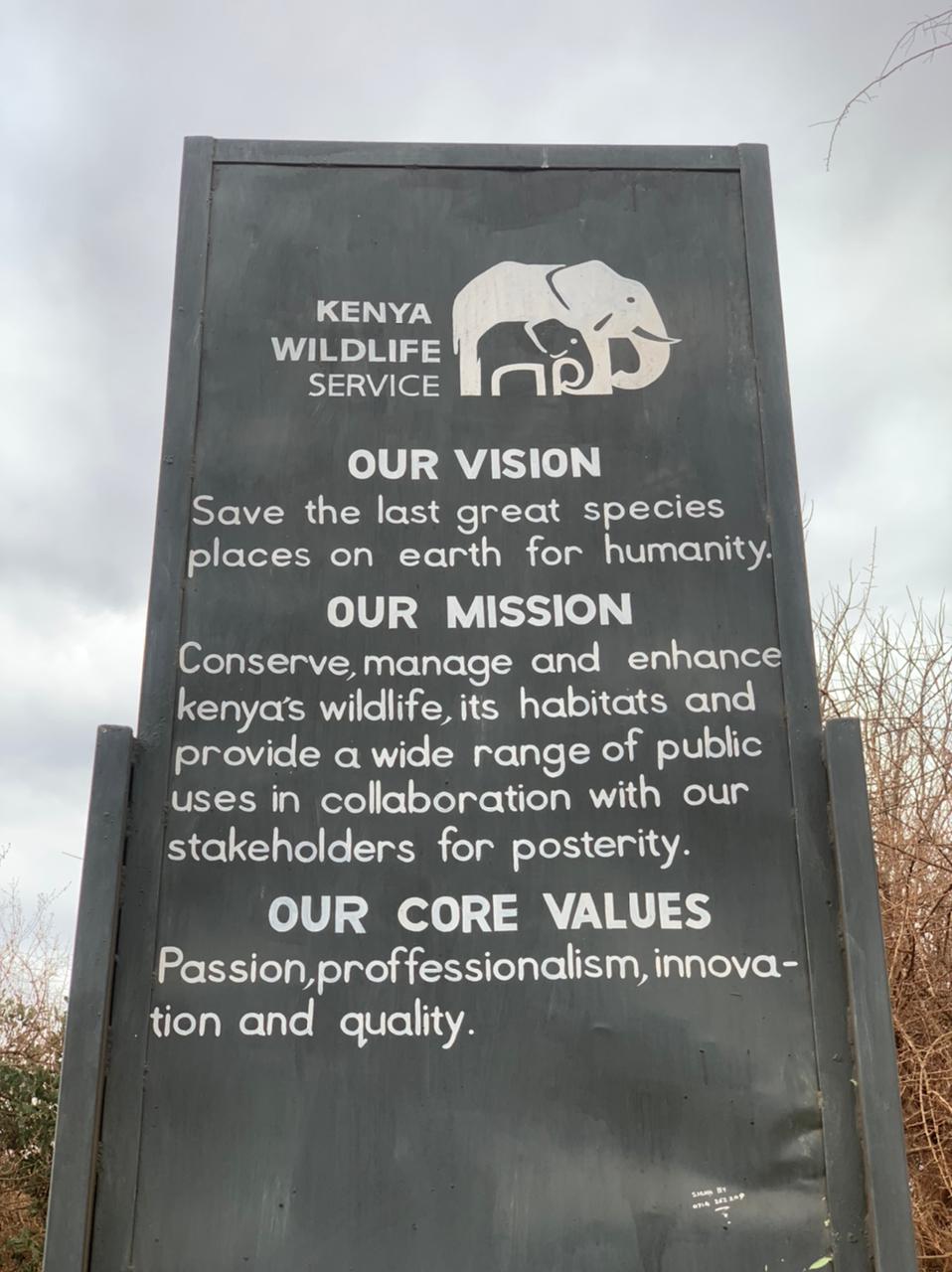
The eco-lodge will be constructed using sustainable building practices and materials sourced locally, ensuring minimal environmental impact. Solar panels and rainwater harvesting systems will be integrated to reduce our reliance on conventional energy sources and conserve water resources.
Our vision for the eco-lodge goes beyond sustainability; it aims to provide comfortable and immersive accommodations for visitors seeking a deeper connection with nature and our culture. Guests will have the opportunity to stay in eco-friendly cottages that seamlessly blend with the landscape, offering breathtaking views of Sagala Hills and the vast plains of Tsavo East National Park.
On World Tourism Day and every day, the communities of Sagala and Rakhasi look to the future with hope and determination. Our holistic approach to sustainable community tourism encompasses cultural immersion, nature conservation, sustainable fashion, tailor and sewing classes, and future eco-lodges. This multifaceted initiative embodies our Indigenous values of respect for nature, reciprocity, storytelling, and interdependence, as we invite the world to join us on a journey towards a more inclusive and sustainable future for people, the planet, and generations to come.
--Peter Kinyanjui (Gikuyu) is from Nairobi, Kenya. He is part of the coordination team for the Motherland Project, which received a Cultural Survival Youth Fellowship this year for implementing sustainable climate change solutions by developing a water-capturing system as part of their fellowship project. Kinyajui is also an active hiker and travel consultant supporting visitors' insight into the cultural relationship with the land.
